For a $4025 list price, you can purchase a 48 core 96 thread x86 CPU, the AMD EPYC 7552. That may not seem like an exciting statement at first, but consider this. The AMD EPYC 7552 was launched almost a year before this article is coming out. Intel, in comparison, launched the Intel Xeon Gold 6258R (benchmarks soon on STH) in 2020 at about the same price point. Intel has higher clock speeds, but it is a 28 core part. AMD has PCIe Gen4 and 8x DDR4-3200 lanes that, if you read our piece on The 2021 Intel Ice Pickle, Intel will not match until the end of 2020 with realistic volume shipments in Q1 2021. While Q1 2021 will bring this feature parity, it will not substantially close the gap over what we have today.
AMD EPYC 7552 Overview
Key stats for the AMD EPYC 7552: 48 cores / 96 threads with a 2.2GHz base clock and 3.3GHz turbo boost. There is 192MB of onboard L3 cache. The CPU features a 200W TDP. These are $4025 list price parts.
Here is the lscpu output for the AMD EPYC 7552:
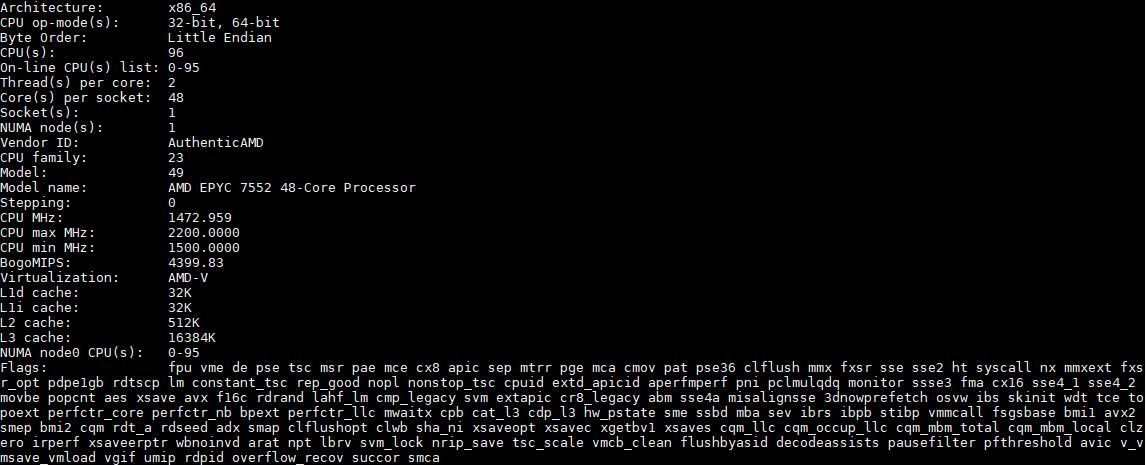
48 cores are inherently interesting. At that core count, one can have meaningful discussions around consolidating multiple sockets of smaller CPUs such as 12, 16, and 32 core units into fewer sockets. Often servers with smaller CPU core counts, such as the Intel Xeon Silver series, also have lower clock speeds which makes consolidation appealing. Having fewer CPU sockets in a 2:1 to 4:1 ratio has a dramatic impact on data center operations.
Beyond the simple consolidation example, just the fact that there is a 48-core CPU is important because with two of these CPUs the compute to PCIe Gen4 bandwidth, PCIe lanes (up to 128x per), memory capacity, and memory bandwidth changes. Some organizations will simply want more cores per CPU than a 28-32 core part can offer, and perhaps 64 cores are seen as too much.
What is different about this part is pricing. This is a lower-clocked 48-core part but AMD also offers the chips at only around $84/ core. Here are the AMD EPYC 7002 “Rome” SKUs on a $(USD) list price/ core basis:
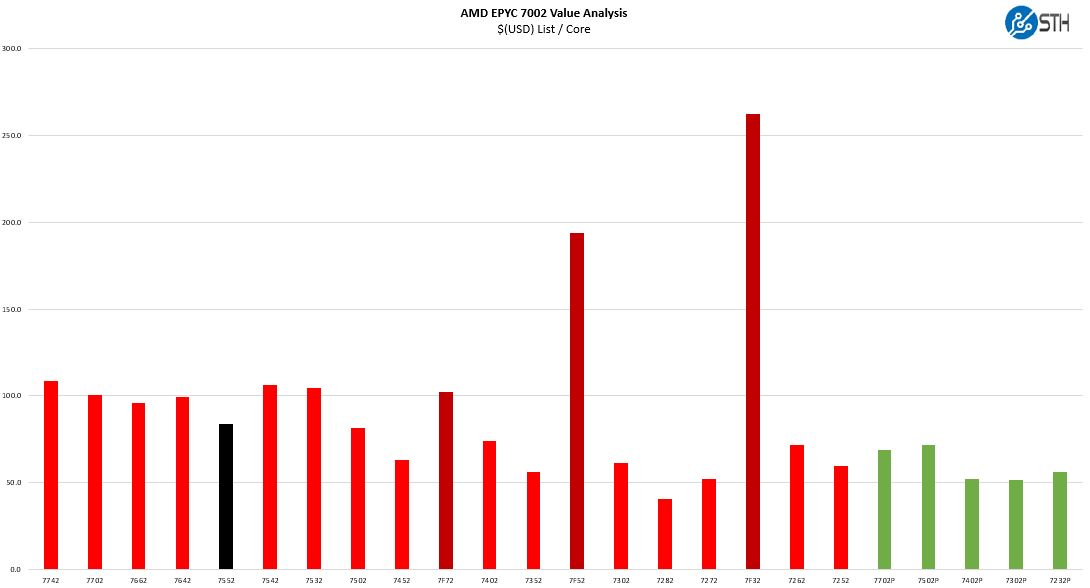
For parts where AMD has a unique core count advantage, in the >28-32 core range, the EPYC 7552 is perhaps the best value on a price per-core basis. Of course, discounting will weigh on street pricing, but at list prices, it gives us some insight into the EPYC 7552’s positioning.
Something we wanted to note quickly here is that the EPYC 7552 may seem like a successor to the AMD EPYC 7551 based on part number. The generational change from a “1” for the first-gen to a “2” for the second-gen carries a jump from 32 to 48 cores.
In our benchmarks, we are going to see what this premium offers. First, we are going to take a look at the test configurations and how we received the chips.

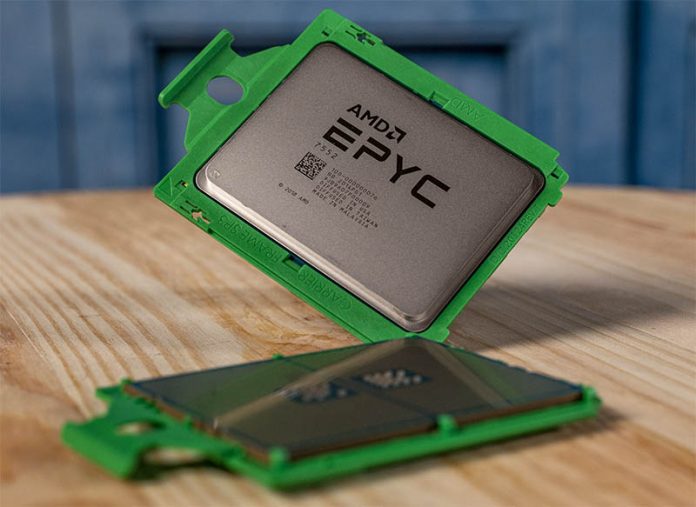

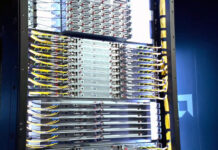
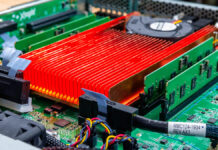
For real datacenter work Bang per powerconsumption is also an important metric.